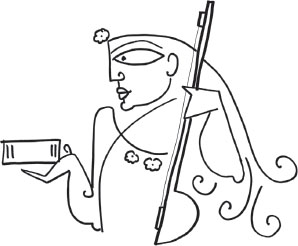

Chandragupta Maurya once complained that he was always surrounded by liars and sycophants. How he wished to have honest people around him. His teacher, Chanakya, laughed and said, ‘It’s the curse of kingship. A king has a sword in his hand and everyone who stands around him is acutely aware of the sword. No one knows how it will swing? So to save themselves they end up lying and flattering the king. It is fear of a king’s moods and opinions that shapes the behaviour in court. Yes, you hate the liars and the sycophants, but who created them? You, only you, by simply being the king.’
Thomas, an investment banker, was preparing for his presentation late into the night. His wife asked, ‘Why are you worried? Are things looking up or down?’ Thomas replied, ‘The market is looking up and the company has nothing to worry about. I am worried about how to present it to my boss so that he does not think less of me. He is constantly judging me. If you present a growth rate more than what he feels, he will mark you as a dreamer. If you present a growth rate that is less than what he feels, he will mark you as unimaginative. Either way one is doomed. One is always defensive in front of him. One has to always strategize what one has to say.’
That very night, Thomas’s boss, Cyril, was telling his wife, ‘People in front of me tell me what I want to hear. I want to hear the truth, what they actually feel about the market, their jobs, our work. But it never happens.’ Cyril is not even realizing that he is influencing the scene before him. He is, inadvertently, the puppet master. He is the observer creating the observation.
In an apparently logical and rational world, we forget how the behaviour of people in power influences the behaviour of people reporting to them. We can make grand statements, that we allow juniors to dissent but the juniors know that dissent rarely makes them popular. It takes a rare breed of people to be able to separate the issue from the person. Often the critic is a marked man. The marks appear in the appraisal.
It is the king who created the yes-man in court; it is the boss who created the yes-man in the corporate world. We look down upon the yes-man—but his actions stem from fear. He is afraid that if he actually says the truth, his head will be chopped off. So he tailors his dialogue such that it pleases the boss.
A good leader has to be sensitive to the power he holds over his followers. How they reflect his behaviour? How he is in a way responsible for the way they behave? If they agree with him all the time, it is more often than not an indicator that he does not like dissent. If they disagree with him all the time, it does not mean that they actually disagree with him; it can be that they have found he appreciates disagreement and so by disagreeing with them they are simply trying to win his approval. He has to be able to create an atmosphere where the issue is being addressed and it is not the boss who is being managed.
Perhaps that is the reason one often hears legends of Akbar and Birbal venturing out secretly in the city dressed as commoners to find out what is really happening; the Mughal emperor clearly did not trust official reports. He knew they were influenced by fear of the king’s sword. Even the gods often approach devotees in disguise. In the Maa Santoshi Vrat Katha, the goddess takes the form of an ugly, old, diseased woman to check if the piety shown by her devotees is genuine or not. Even the gods know that the expressions and declarations made in the temple are not to be trusted.

